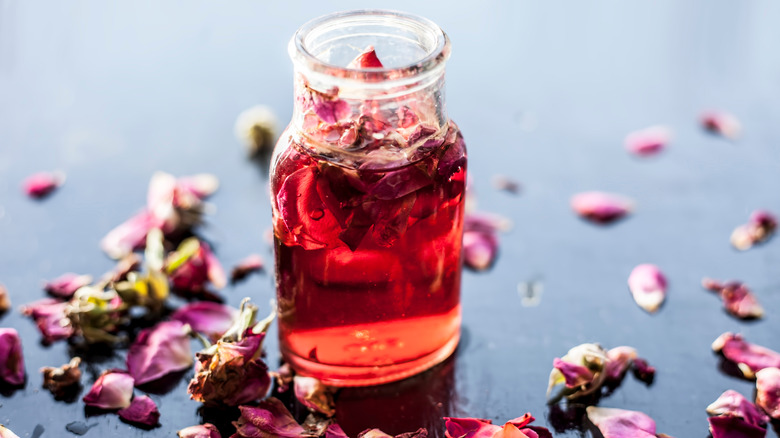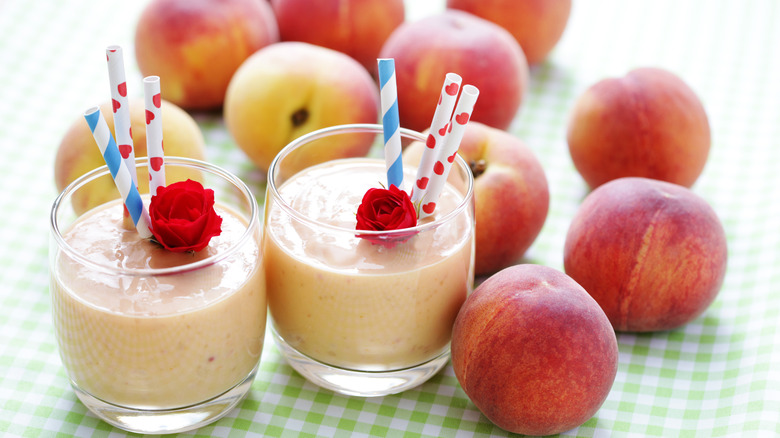The Secret To Sprucing Up Late Summer Fruits? Rose Water
Summer abounds with amazing produce that often requires little more than a good rinse and a towel to wipe up the juice dripping down your chin. It's hard to resist stocking up on perfectly sweet peaches, spoonable cantaloupes, and vibrant, sweet-tart raspberries.
But as the days get shorter and farmers pack up their last harvests, the once-delicious summer fruit may start to look lackluster. Perhaps the stone fruit isn't quite as juicy, the melons are a bit firm, or the blueberries lack their usual pop of flavor. Or maybe you were overzealous at the market, and now find yourself with a fridge filled with fruit that's sadly past its prime. The good news is that there's a secret ingredient that can amp up flavor, turning flat, late-summer fruits into the star of the show again.
The secret ingredient is rose water. Resembling rose petal tea in both appearance and aroma, rose water is widely used for skin care and fragrance, but it's also a delicious addition to both food and drink. Said to have been created by the ancient Persians, today rose water is a common ingredient in Indian desserts like gulab jamun, Turkish delight (also known as lokum), and in savory dishes such as Moroccan-style roasted chicken with saffron and cinnamon. Rose water is very fragrant and floral; when used appropriately, it can heighten the existing flavors in fruit, adding a heady intrigue that makes you want to take another bite.
How to use rose water with fruit
Rose water has a very strong flavor and aroma, so if you prefer a milder version, you can create it at home by steeping fresh or dried rose petals in hot water. When buying a bottle, it's wise to splurge on a high-quality product; it will last a long time since you only use it in small quantities, and a low-quality rose water runs the risk of coming off as unpleasantly flowery and overpowering.
When experimenting with rose water in fruit dishes, it's best to start with about ¼ teaspoon per pound of fruit and work your way up from there. Try macerating fresh berries with sugar, lemon juice, and a touch of rose water, then serve them over vanilla ice cream or plain yogurt. For the best creamy desserts of your life, add rose water to fruity cheesecakes or raspberry panna cotta. Blend rose water with frozen peaches, lime juice, white rum, and simple syrup for a riff on a frozen daiquiri, or add a hint of rose water to summer fruit desserts like a blueberry cake or plum tart.
Keep in mind that though rose water maintains a strong, aromatic presence, when it's used in a cooked recipe, it takes on a rounder, vanilla-like flavor. Either way, the judicious addition of rose water to summer fruit can be a hit.


